
Learn How To Scale Your Digital Commerce Platform
In this white paper, we cover 12 Digital Commerce Platform Growth Strategies that will help your business innovate, penetrate new markets, test and adopt new business models, and ultimately, leverage available and ever-evolving Digital Commerce platforms:

-
Strategy #1: Selling Direct to-Consumer (D2C)
-
Strategy #2: Starting a Marketplace for Growth
-
Strategy #3: Leveraging Social Shopping
-
Strategy #4: Building a Community
-
... and 8 Other Digital Commerce Growth Strategies
An Error occured while trying to load the form. Please reload the Browser to try it again.
Assess your Digital Commerce needs
Understand the strategies and technologies that you need to adopt to stay ahead.
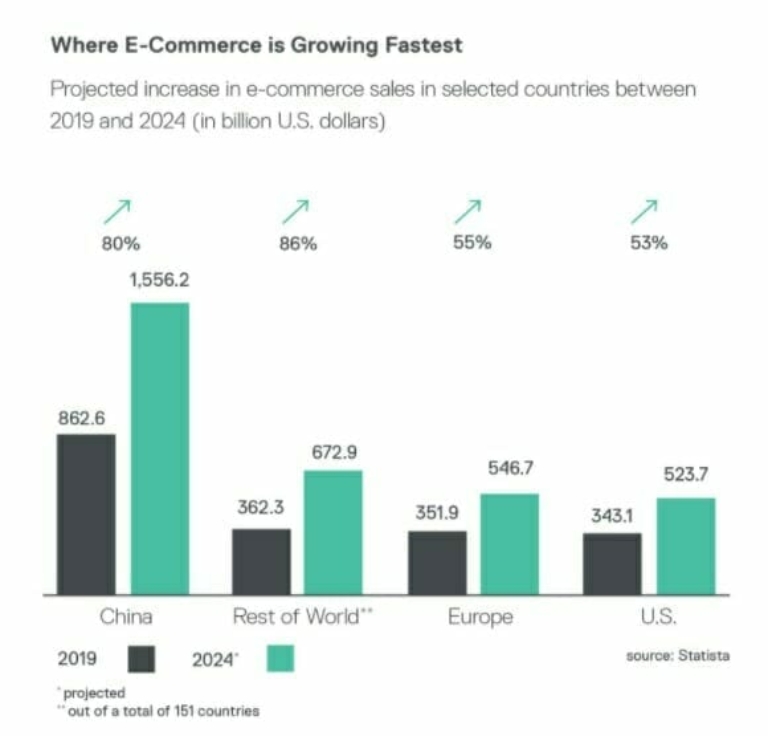
Why choose Spryker's Digital Commerce Platform
- App Composition Platform
- Headless Commerce
- Packaged Business Capabilities
- Modular Approach
App Composition Platform
Try out 3rd party services with their online business in the most seamless, secure and curated way. With the simple click of a button, connect to payment service providers, search, and other third party integrations – no coding required!
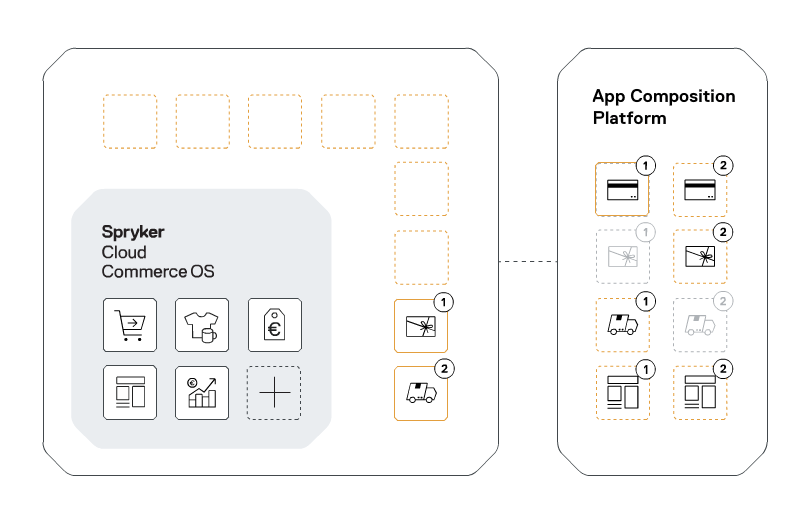
Headless Commerce
The use of an application programming interface (API) to connect multiple platforms on the front-end, thereby making it easier for developers to create personalized experiences without having to make alterations on the back-end system. By decoupling the back-end functionalities from the front-end, it is easier to release new features that customers can access through multiple channels or storefronts such as mobile, social, wearables, voice assistants, and other IoT devices.
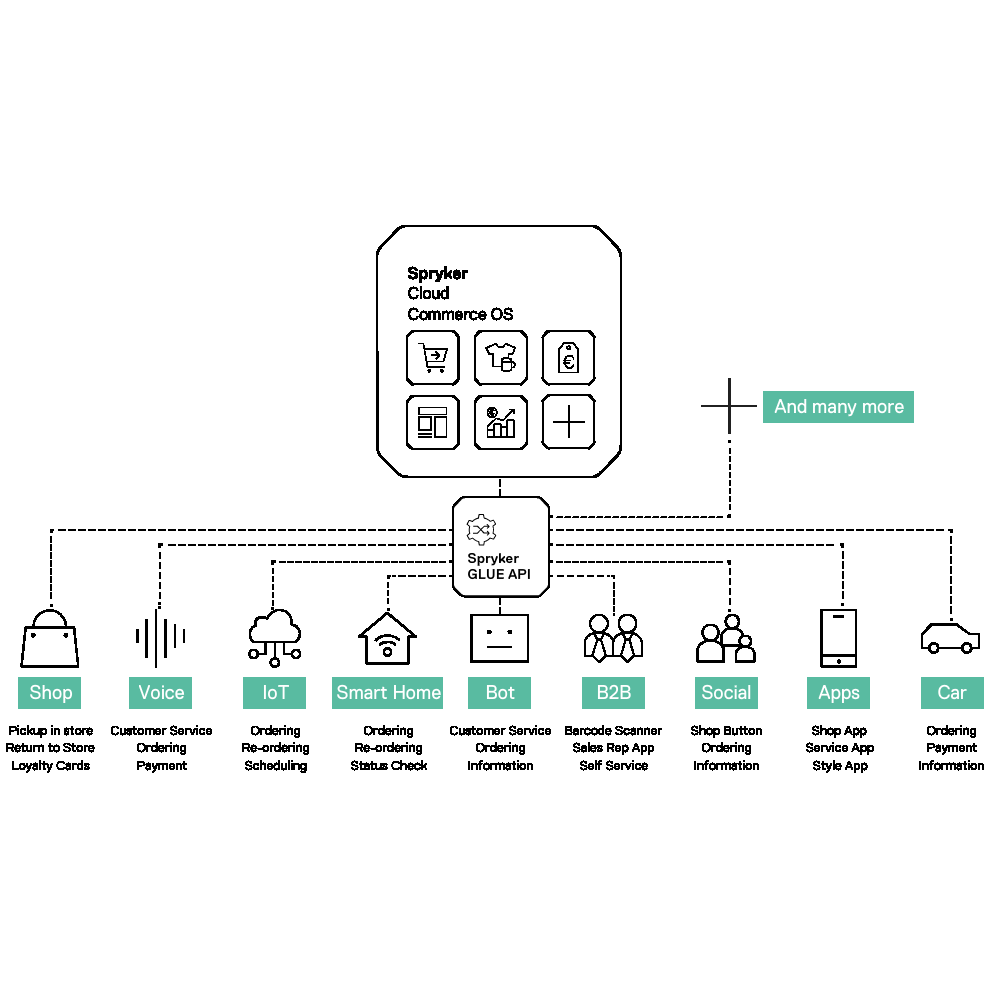
Packaged Business Capabilities
Packaged Business Capabilities, or PBCs, are an assembly of functionalities that are grouped into larger clusters. All functionality should be encompassed within the PBC and no critical dependency to others should be given. Communication between the different PBCs and other systems should work based on an API infrastructure, to maximize speed and security. Compared to known Microservices, PBCs provide better governance by business users compared to costly and complex monitoring by IT experts.
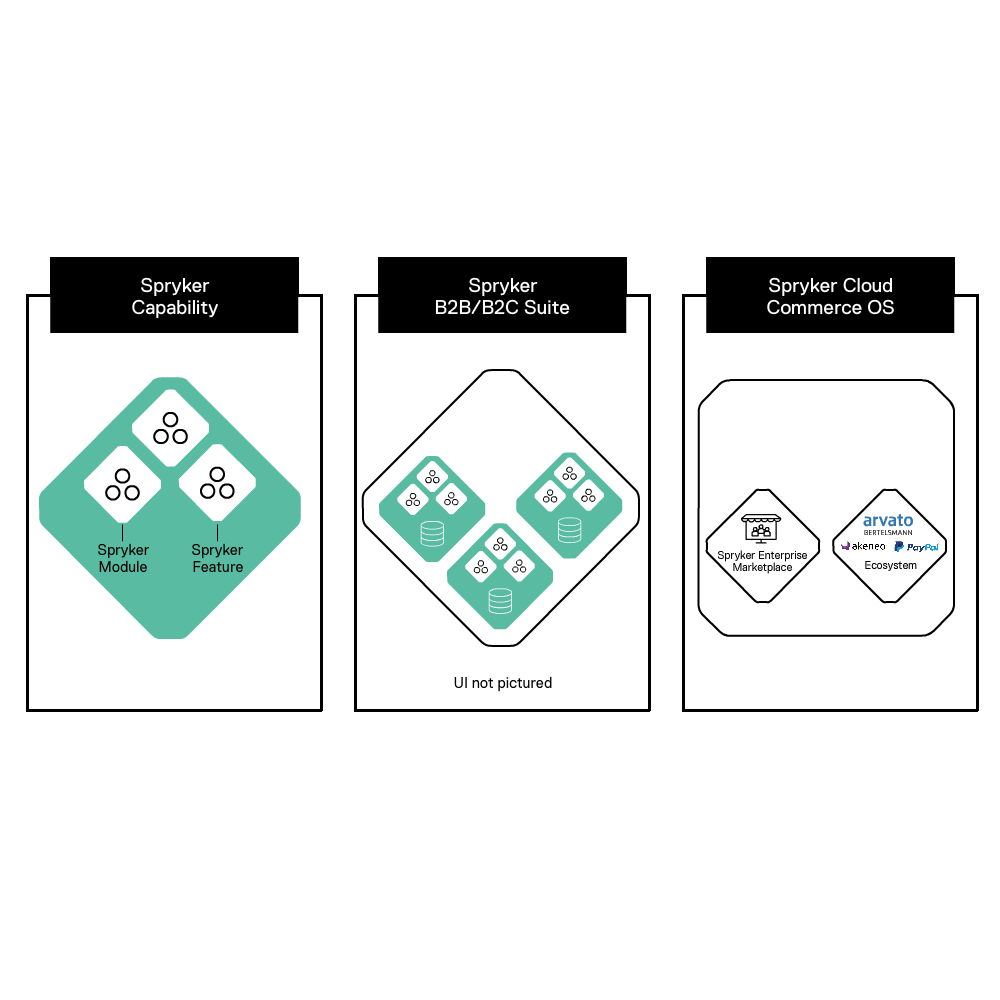
Modular Approach
Modularity means updating and adding features, front- or back-ends as needed based on your business needs. Utilize the entire Spryker system, only specific features, or integrate your preferred 3rd party systems, your business is never limited in what you can do or how you can grow. Launch MVP using only necessary features. Add, delete, and test new features easily without downtimes. Developers work in parallel allowing for faster implementation, testing, and better optimization—all for less internal cost
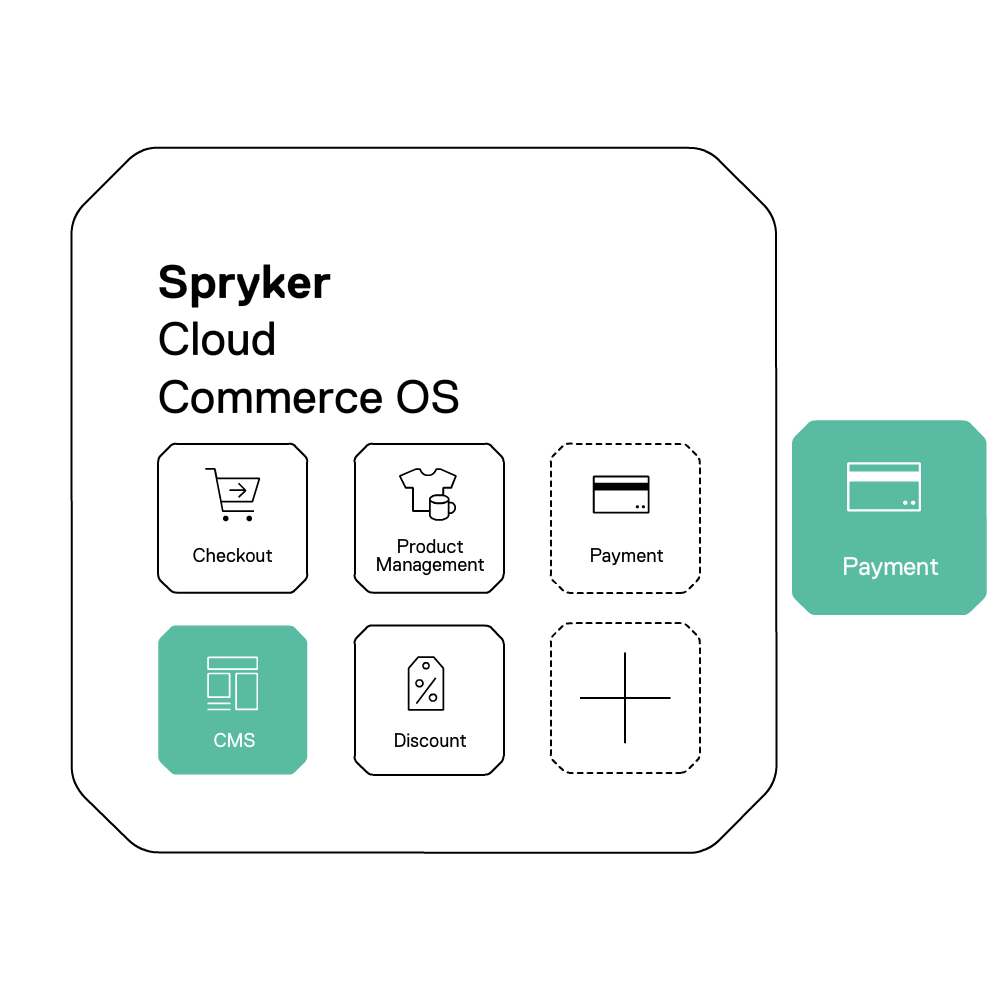
-
What is headless commerce?
Headless commerce is an approach to e-commerce architecture that decouples the front-end and back-end of a web store, allowing businesses to use different technologies and tools for different parts of their e-commerce platform. This can help improve flexibility, scalability, and customization options.
-
What is composable commerce?
Composable commerce is a newer approach to e-commerce architecture that focuses on using modular, interoperable components to build a flexible and scalable e-commerce platform. It allows businesses to assemble and customize their e-commerce stack using best-of-breed solutions and APIs.
-
How does headless commerce differ from composable commerce?
Headless commerce and composable commerce share some similarities, such as a focus on flexibility and customization. However, headless commerce typically refers to the decoupling of the front-end and back-end, while composable commerce refers to the use of modular, interoperable components to build an e-commerce platform.
-
What are some benefits of using headless commerce and composable commerce?
Both headless commerce and composable commerce can offer several benefits to businesses, including greater flexibility, scalability, and customization options. They can also allow for faster development and deployment of new features and functionality, and can make it easier to integrate with other systems and tools.
-
What is a digital commerce platform?
A digital commerce platform is a software solution that enables businesses to sell products or services online. It includes features such as a shopping cart, payment gateway integration, product catalog, order management, and customer management.
-
What are the benefits of using a digital commerce platform?
A digital commerce platform can provide several benefits to businesses, including increased sales and revenue, improved customer experience, and streamlined operations. By selling products or services online, businesses can reach a wider audience and operate 24/7. Additionally, a digital commerce platform can help automate tasks such as inventory management and order processing, freeing up time for businesses to focus on growth and innovation.
Spryker is Trusted by Industry Leaders

Want to Know More About Spryker's Digital Commerce Platform?
Visit our Product Portal and find in-depth information regarding all available Spryker products, features and solutions for your business.
Digital Commerce Capabilities
Digital Commerce Feature Glossary
Spryker Technology
An Error occured while trying to load the form. Please reload the Browser to try it again.

